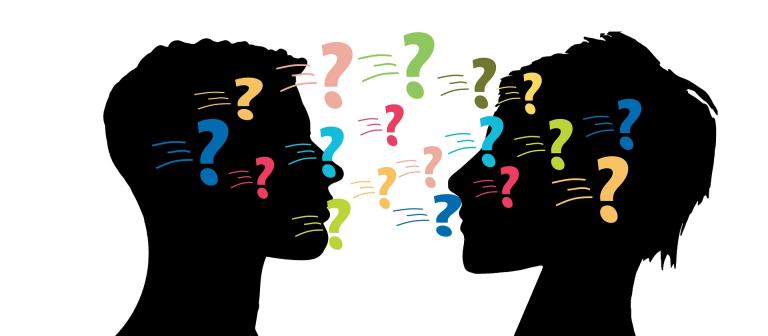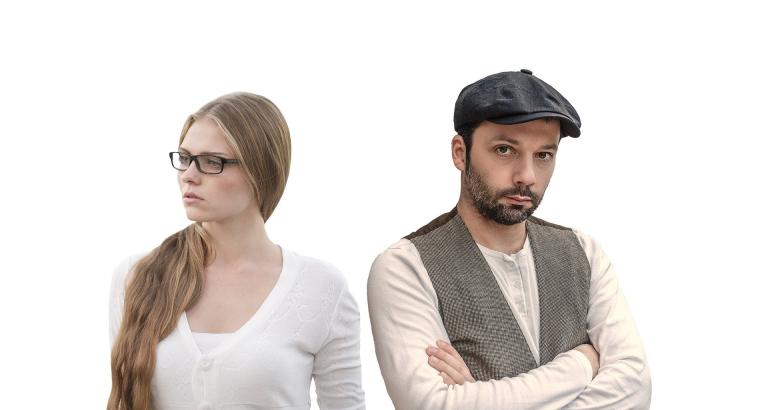 Patty’s husband was cheating on her and the pain was too much. She wasn’t eating, sleeping or getting out of bed. She knew she was in trouble. Yet, when I suggested she see someone to help her through this, she said no. At first, she was hesitant to tell me why. But the more we talked, I realized that she was afraid of what happens in a therapy office.
Patty’s husband was cheating on her and the pain was too much. She wasn’t eating, sleeping or getting out of bed. She knew she was in trouble. Yet, when I suggested she see someone to help her through this, she said no. At first, she was hesitant to tell me why. But the more we talked, I realized that she was afraid of what happens in a therapy office.
Patty’s hesitancy was based on a lack of understanding about the counseling process. Telling a stranger your problems is not the easiest thing to do. But when you need help, it can make such a difference. However, there are a few common myths about going to therapy that keep people from getting help.
Myth #1: I am doomed by my dysfunctional family. Show me a family that is not dysfunctional, and we will all move to that planet! Even then, there is no guarantee that people won’t become dysfunctional. You can’t blame your family for your problems. Families may contribute to your problems, but you are ultimately responsible for fixing them. That said, doing family work in therapy can help tremendously. Family therapy helps identify dysfunctional family patterns and teaches you to respond differently. Understanding your dysfunctional family allows you to make changes. You are not a victim.
Myth #2: We are going to talk about our mothers. Only if they are not in the room! Just kidding! Seriously, moms have a bad rap. Being a mom is the hardest job I have ever undertaken. We should talk about our moms, but in kinder, more empathetic ways. Stop blaming them for all the ills of the world. They did not cause famines in our land, riots in our streets or wars among nations. And while mothers may contribute to problems, the goal is to work out the relationship with her, your dad, your siblings and the rest of the family. If you mom is part of the problem, we will talk about her. Otherwise it is a myth to think therapy focuses on moms.
Myth #3: My problems are because I wasn’t breast-fed. You have real problems if you even make this statement. I mean, think about it. This myth started with Freud. He needed to blame his mother (see #2). Related to this myth is a truth though. The early bonding between a mother and child is important. It form a secure attachment for young children preventing later problems. Since you can’t redo your childhood, figure out how early problems related to security and attachment may affect you now. But once you understand the influence, you can respond in ways to feel more secure in your current relationships.
Myth #4: I have to lie down on the couch and get in touch with my inner child. Inner child, outer child—get in touch with your grown-up child! I am not dismissing the wounds of childhood. They deeply affect us as I mentioned. However, we can get so stuck in our childhood pain that we don’t change our current adult behavior. Talking about your years growing up can help you identify patterns of behavior you might want to change as an adult. As a grown up, you have control over your reactions.
Myth #5: If I like to help people, I must be co-dependent. By today’s definition of codependency, Jesus was codependent. Helping others and showing concern for them is not pathological. It’s called Christ like. It’s part of who we are as people. The problem comes when help isn’t helpful—when you do for others what they can do for themselves. So figuring out the difference between healthy helping and co-dependency is a good thing.
Myth #6: I am a victim (see #1). If you were raised in the 1950s, you suffer from the repression of women; grew up in the 1960s, the “devil made you do it,” and is to blame. Raised in the 1970s, then free love and drugs led you astray. If you were raised in the 1980s, you got caught up in materialism and greed. If you were raised in the 1990s, Bill Clinton’s mother and grandmother are to blame (see #2). The truth is…everything can influence you, but you are ultimately responsible for who you are before God. On the Day of Judgment, I can’t imagine God allowing us to parade a long line of people who prevented us from taking responsibility. Somehow, I think we face the big Guy alone.
Myth #7: I will be in counseling the rest of my life. If you do, you are seeing a crook, not a counselor. The purpose of counseling, or any help for that matter, is to help you stand on your own two feet. The idea is to get problem sresolved and move on with life. A good counselor, especially one who understands the transforming power of God, doesn’t give you a life sentence.


